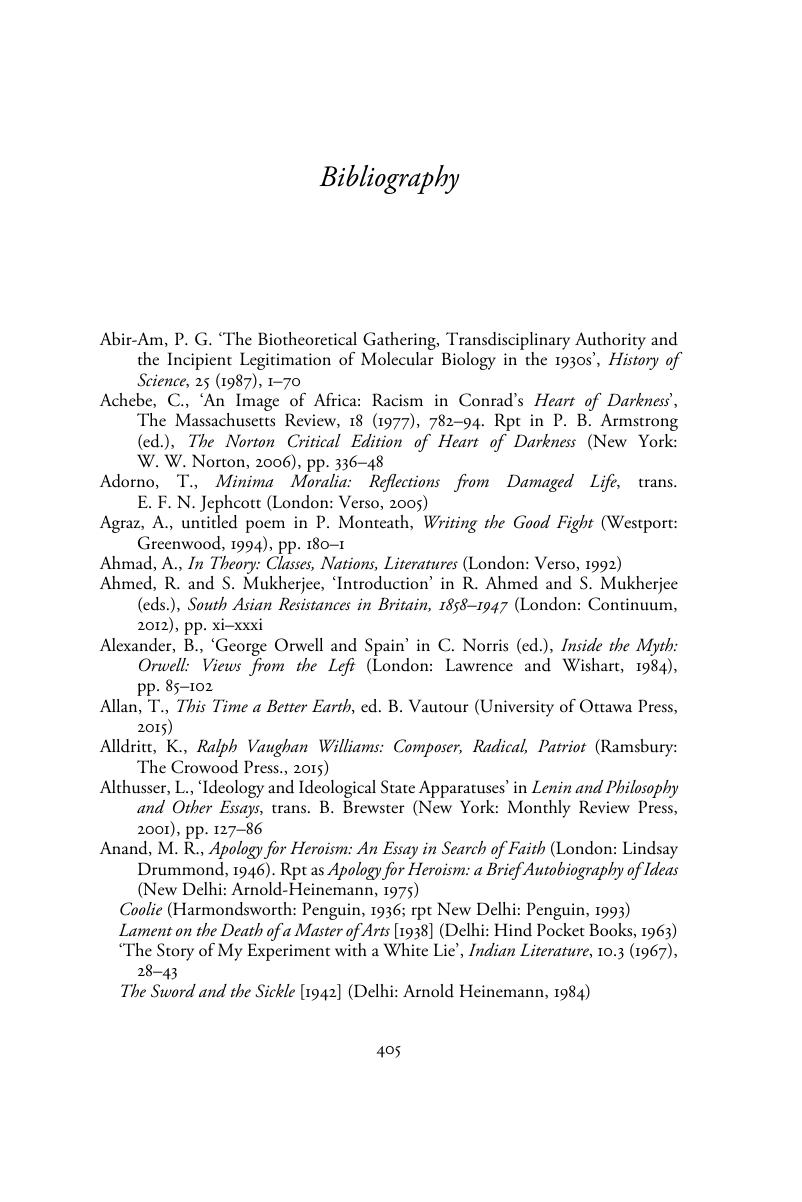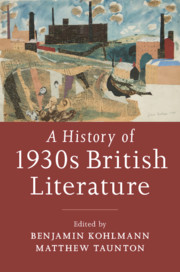Book contents
- A History of 1930s British Literature
- A History of 1930s British Literature
- Copyright page
- Contents
- Figures
- Notes on Contributors
- Introduction: the Long 1930s
- Part I Mapping a New Decade: Geographies and Identities
- Part II Media Histories and the Institutions of Literature
- Part III Commitment and Autonomy
- Part IV The Global 1930s: Conflict and Change
- Bibliography
- Index
- References
Bibliography
Published online by Cambridge University Press: 16 May 2019
- A History of 1930s British Literature
- A History of 1930s British Literature
- Copyright page
- Contents
- Figures
- Notes on Contributors
- Introduction: the Long 1930s
- Part I Mapping a New Decade: Geographies and Identities
- Part II Media Histories and the Institutions of Literature
- Part III Commitment and Autonomy
- Part IV The Global 1930s: Conflict and Change
- Bibliography
- Index
- References
Summary

- Type
- Chapter
- Information
- A History of 1930s British Literature , pp. 405 - 435Publisher: Cambridge University PressPrint publication year: 2019



